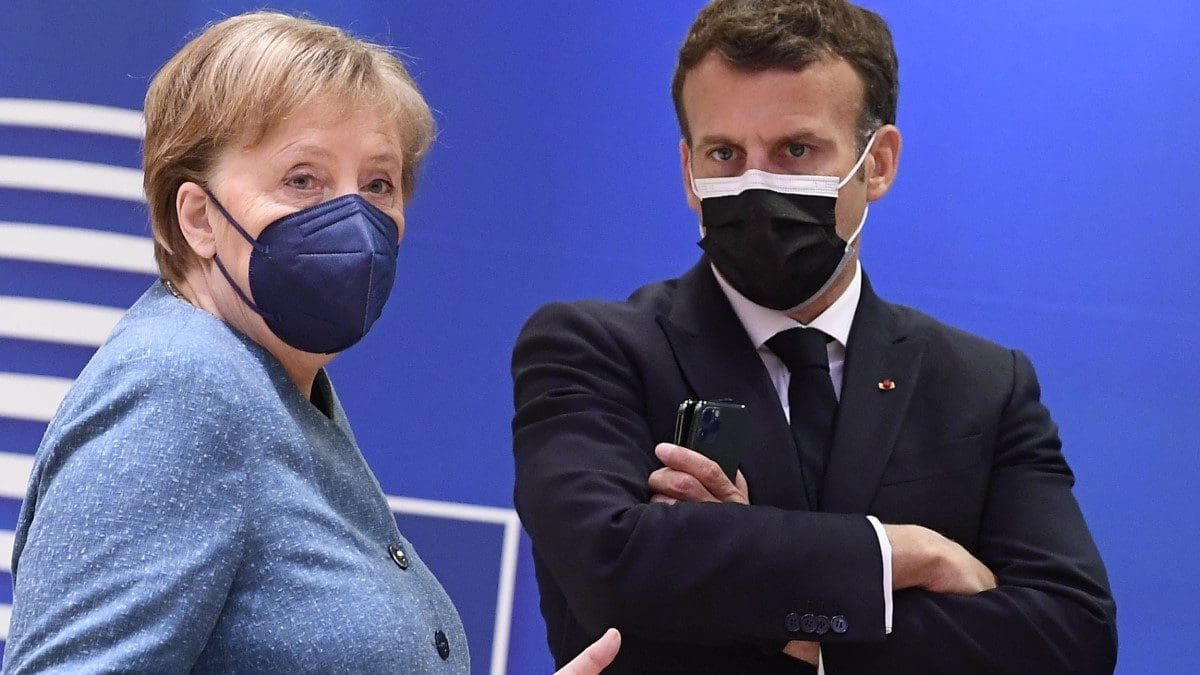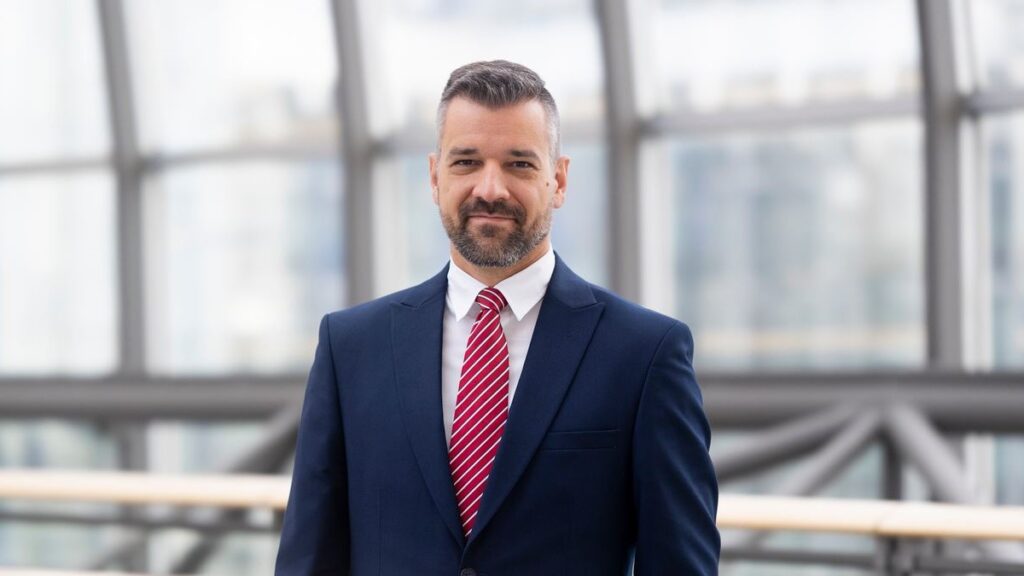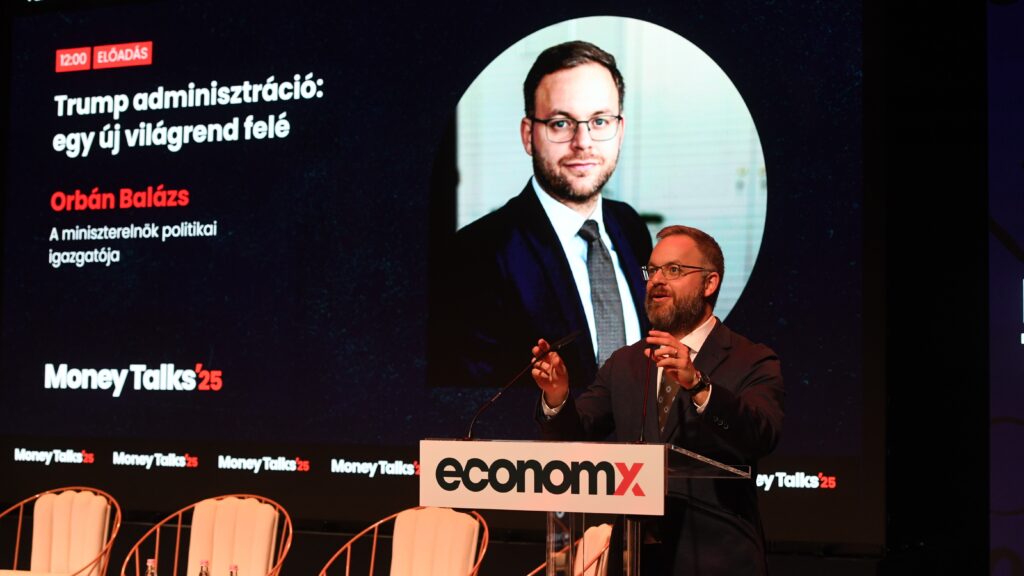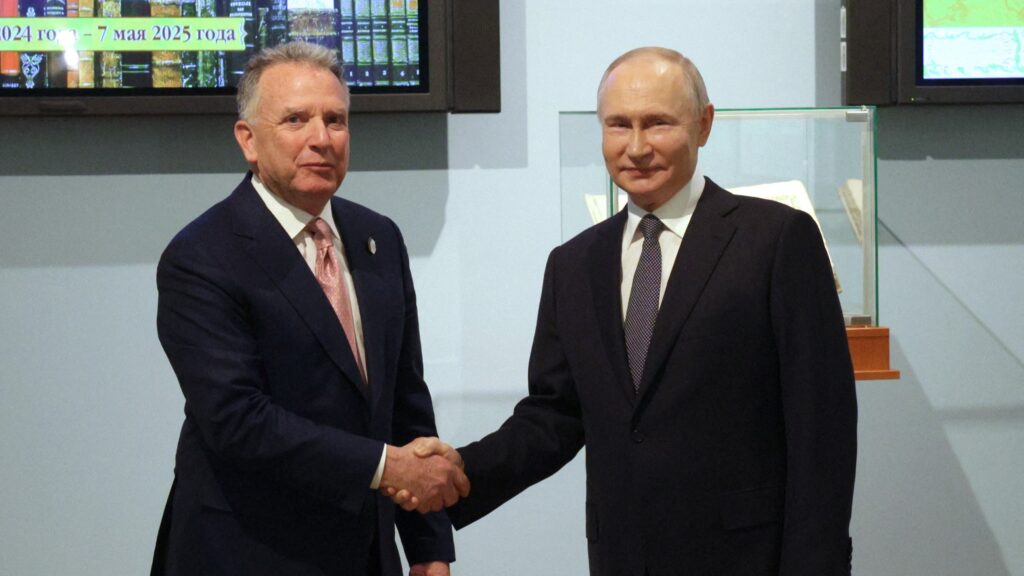With Angela Merkel stepping down as German Chancellor, the smooth cooperation period between her and French President Emmanuel Macron is coming to an end. What did this enhanced French-German cooperation mean for the Visegrád countries, and what might the future hold for the two coalitions in the European Union?
The election of Emmanuel Macron in 2017 as president of the French Republic, who campaigned with a strong pro-European agenda, gave rise to serious expectations to refresh the European Union (EU). He knew though that his Initiative for Europe[1] could not be carried out without the solid alliance of Germany, in particular the German Chancellor Angela Merkel. Now, after Brexit, France has a historic chance to enhance its status in the EU through the reinvigoration of the Franco–German tandem. Even though this coalition has strong historic roots, others emerged as well during the past decades, most importantly for us the Visegrád Group, established in 1991 by the Czech Republic, Hungary, Poland and Slovakia.[2] This article aims to shed light on the dynamics between these two coalitions that seem to be shaping a great many of the points on the European agenda.
President Macron’s wish for a functioning tandem
In 2017, at the beginning of Macron’s term, two fundamental differences were apparent in the French and the German approaches. France called for greater solidarity in the EU, while Germany demanded greater responsibility from fellow members. These opposing positions were brought closer thanks to the cordial personal relations of the two leaders. Despite their different background and the age gap between them, they could both find a common voice already at the very beginning of their cooperation. Some journalists even suggest that the young French president might have learnt certain things from Merkel’s political behaviour, if only how to keep the media at arm’s length.[3]
The alliance was solidified by the renewal of the Élysée Treaty[4] signed by then French President Charles de Gaulle and German Chancellor Konrad Adenauer as the symbol of the French–German reconciliation. The new treaty[5] was signed on 22 January 2019 at Aachen, exactly 56 years after the original one. In their joint statement, the two countries committed themselves to pursue further integration, enhance cooperation and coordinate various policies. The main objective of the treaty was to send a signal to partners that Paris and Berlin are both willing to uphold the European ideals and pool sovereignty. Somewhat opposite to the rhetoric of the V4, especially Hungary and Poland that insist on the importance of preserving national sovereignty.[6] The most important outcome of this enhanced entente between Paris and Berlin is the European Recovery Plan signed in 2020, set to allocate 750 billion euros in order to help member states’ economic recovery after the pandemic.[7]
Franco-German cooperation for a strong united Europe
After sixteen years of chancellorship, Angela Merkel is to resign her position at the beginning of December. This will also mean the end of a relatively smooth cooperation between her and Emmanuel Macron. It is Olaf Scholz, the leader of the Social Democratic Party (SPD) who is set to occupy Mrs Merkel’s chair.[8] What we already know is that he is a pro-European and in his relationship with the French President the latter will be the senior partner, bringing in a different dynamics to the axis.
In President Macron’s vision, the current geopolitical situation of the European Union calls for an action. In the meantime, the Germans are always more reluctant to engage in security policy endeavours
The reason for this discrepancy is that France considers the European Union to be a channel for conducting foreign policy more effectively on the global stage, while Germany sees the integration rather as an extended market for German products and investments. Yet, since 2017, there has been a slight window of opportunity for the French–German engine to fuel European foreign policy, arguably because of the cordial personal relations between the two leaders.[9] Because of its constitutional constraints and public demand, Germany; however, has not been eager to participate in high-intensity military operations, while France has been continuously initiating them, urging the EU to resume geopolitical responsibility. Yet, Germany has recently showed increasing interest in further developing European security, actively contributing to what is called European Strategic Autonomy. As a result of the cooperation within the coalition, during the French presidency of the Council in the first semester of 2022, a so-called White Paper will be published listing the EU’s strategic and defence priorities.[10]
Future of the coalitions – future of the EU
Even if the Aachen Treaty is primarily a joint Franco–German statement of cooperation, it drew the attention of EU partners, such as the governments of Hungary and Poland that advocate for greater inclusion in decision-shaping processes and respect for their national sovereignty. Even if Paris and Berlin reinforced their commitment to the security cooperation within NATO, they also pledged to develop a European Strategic Autonomy. Since then, the EU has been trying to coordinate more the defence and security industries of the member states, which is in line with V4 interests. The green issues are also becoming more and more emphasised in both France and Germany, which might have negative implications on Poland in particular, where the coal industry is still highly operational. Moreover, Hungary and Poland are also firm in their border control approach, which might divide France and Germany as several French voices call for stricter immigration rules.[11]
There are, nevertheless, several common priorities between these five member states of the EU, such as the development of the Common Security and Defence Policy, the furthering of the digital agenda, finding solutions to energy constraints, pay more attention to justice and home affairs, building a social Europe. What adds to more connections between the Franco–German and Visegrád coalitions is that both France and Germany are leaning toward a multi-speed Europe in dealing with security, economic or social issues. This idea is also on the top of the Visegrád countries’ agenda, which might prove to be a good soil for cooperation.[12] Yet, the realisation of the multi-speed EU is imagined in different ways in the capitals of the coalitions. The two-speed Europe idea, meaning a core integration of the Eurozone and then the rest of its members could follow, is rejected by Hungary and Poland as they fear that they would be excluded from decisions bound to affect them, as well. With the end of the Macron–Merkel alliance, Central European states might find some extra leverage in injecting their plans into the multi-speed project, where the able and the willing should cooperate on certain policy issues.[13]
Consequently, the French and German partners indeed have to consider that the EU is made up of 27 member states, so in order to achieve real reforms, they will have to convince the rest of the integration
In the meantime, Central European EU member states will also put great effort into enhancing cooperation with each other and can prove to be the greatest opponents of the Franco–German viewpoint. There are several factors weighing on the Franco–German and V4 relations. Poland, for example, regrets the unfairness of the EU system, where Polish points of views are often side-lined. This is why the Franco–German tandem should pay particular attention not to give the impression of ignoring European partners because this might motivate coalitions to turn against them and their joint initiatives.[14] Even more so—as in the economic dimension—the V4 can become a powerful constellation in Europe. For all of them the number one export destination is Germany, while trade relations with France come in to the fourth or fifth position.[15] Hungary, in particular, might want to boost trade relations with France in the future because of the exit of the United Kingdom from the EU as London was a large trading partner for the country.[xvi] In order for the V4 to become as relevant and powerful as the Franco–German tandem, there is a need for closer trade and economic relations in addition to the existing political and cultural ones. All of them are relatively open economies, they export to the EU as well as to the global markets. Complementarity is needed instead of a possible competition despite their currently highly similar trading profiles.[16]
The V4—as a coalition—can have a considerable impact on the future of the EU, since the cooperation among these four Central European countries can turn into such a strong alliance as the Franco–German one, where not only the governments, but also the civil society coordinates their actions. It is bound to have its ups and downs as they are different countries with occasionally opposing interests.[17] Slovakia and the Czech Republic are generally more EU-friendly, while Hungary and Poland tend to be more Eurosceptic. Slovakia is the only Visegrád country to be a member of the Eurozone. Overall, the V4 maintains closer relations both economically and politically with Germany, but there is a tendency of increasing French interest towards the region too.[18] Yet, in order to strengthen cohesion in the EU after the turbulence of Brexit and amidst the US–China rivalry it is important for the two blocks to act as one for the future of the integration. As a result, it seems now, that the current French government wishes to strengthen ties with the V4 in the recovery following the COVID–19 pandemic building on the several joint priorities they discovered during a meeting held in Krakow this summer, announced by French Minister for the Economy and Finances Bruno Le Mair. They envisage collaboration in the fields of pharmaceutic, health, nuclear energy, hydrogen technology and electric battery production. Building closer economic ties might also trigger a dialogue on the future of Europe.[19] With regards to climate change, all V4 countries and France find it to be a crucial issue of this century, so they are willing to support the EU stepping up to fight climate change. When it comes to EU enlargement, France and the V4 welcome the West Balkan countries’ efforts to join the EU.[20]
In conclusion, there are a lot of good practices the two coalitions could learn from each other, and they should put greater effort into understanding each other’s viewpoints, motivations and interests. In that scenario, they can both trigger favourable chances in the European project and ally new countries to support their endeavours.
[i] https://www.elysee.fr/emmanuel-macron/2017/09/26/initiative-pour-l-europe-discours-d-emmanuel-macron-pour-une-europe-souveraine-unie-democratique
[ii] https://www.visegradgroup.eu/about/history
[iii] https://www.irishtimes.com/news/world/europe/m-m-merkel-and-macron-are-europe-s-newest-double-act-1.3227914
[iv] https://www.france-allemagne.fr/Traite-de-l-Elysee-22-janvier-1963.html
[v] https://www.diplomatie.gouv.fr/en/country-files/germany/france-and-germany/franco-german-treaty-of-aachen/
[vi] https://www.atlanticcouncil.org/blogs/new-atlanticist/france-germany-treaty-of-aachen/
[vii] https://www.ifri.org/en/publications/publications-ifri/articles-ifri/future-franco-german-tandem
[viii] https://www.bbc.com/news/world-europe-59399702
[ix] https://www.ifri.org/en/publications/publications-ifri/articles-ifri/future-franco-german-tandem
[x] https://www.csis.org/analysis/what-future-french-german-engine
[xi] https://kurier.plus/en/node/474
[xii] https://www.europeum.org/articles/detail/1817/charting-a-new-path-for-a-reinforced-and-improved-v4-france-cooperation
[xiii] https://kurier.plus/en/node/474
[xiv] https://icds.ee/en/the-aachen-treaty-the-beginning-or-the-end-of-united-europe/
[xv] https://www.obserwatorfinansowy.pl/in-english/macroeconomics/the-top-export-partners-of-v4-countries/
[xvi] https://dgap.org/en/events/germany-and-visegrad-group
[xvii] http://www.oeconomus.hu/irasok/a-visegradi-orszagok-kereskedelmi-kapcsolatai/
[xviii] https://dgap.org/en/events/germany-and-visegrad-group
[xix] https://www.dw.com/en/visegrad-group-a-new-economic-heart-of-europe/a-49483505
[xx] https://www.thefirstnews.com/article/france-seeks-closer-ties-to-v4-french-minister-says-22763








